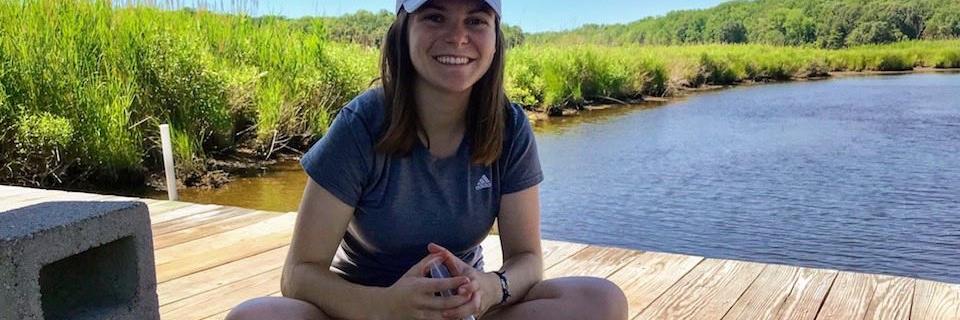Student Gets Hands-On Research Experience In Smithsonian Summer Internship

Despite being landlocked in Kansas, senior Mary Strecker, a biology major and environmental studies minor, has long had her mind on the ocean.
More specifically, she said, acidification of the world’s oceans caused by increased carbon dioxide levels and its effects on those ecosystems. It started in high school, and Strecker said she even wrote a proposal for a study on the topic in an introduction to research course at Rockhurst.
“I could just not read enough about this important issue,” she said.
So when the time came to find an internship for this past summer, Strecker was drawn to the Research Experience for Undergraduates, a National Science Foundation-funded program that connects college students to organizations conducting scientific research for a 10-week internship. Strecker earned a spot at the Smithsonian Environmental Research Center studying coastal ocean acidification in the Chesapeake. After years of reading about what others were doing in the field, she had the chance to see it and experience it for herself.
“My summer consisted of field work, lab work and a lot of learning,” she said.
Strecker said she got hands-on experience with the lab’s equipment and familiarized herself with background research to get up to speed with the work researchers had already been doing there.
Once she had that knowledge, Strecker said she was able to take on a project of her own measuring how much carbon dioxide is contributed by organisms in one section of the coastal water compared to carbon dioxide levels of the whole system. That meant collecting 5-gallon samples of water from the Rhode River near the SERC dock and measuring the carbon dioxide from respiration of the microorganisms like phytoplankton and bacteria in that sample. She presented the result of that project, titled “One Piece of the Puzzle: Water Column Respiration Rates in the Rhodes River,” to her colleagues at SERC.
It was the experience she hoped for in an area of science she was passionate about. And during it all, Strecker said she was able to talk to other college-age students, recent graduates, post-doctoral researchers, and others in the field to learn more about what life is like as a working scientist. As importantly, she said, being surrounded by others from all over the world helped her understand on a deeper level why she wants to do this work.
“I also just learned a lot about people from all kinds of backgrounds which I found valuable in widening my worldview,” she said. “Their upbringings and experiences reminded me that if you want to make a difference in the world, you better work to understand it first.”







